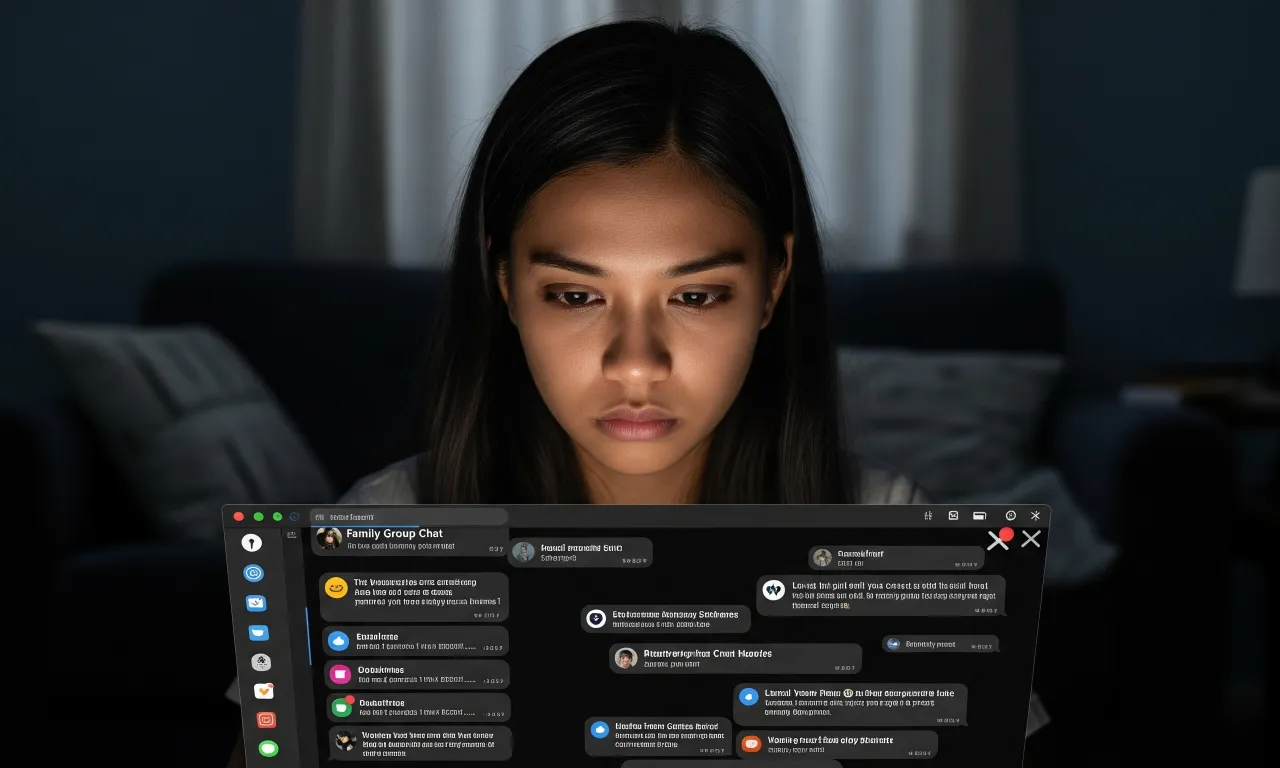💔 Behind the Filters: The Secret Anxiety of a Generation
They are often dismissed as lazy. They are constantly told to “work hard” like their parents did. Their world seems so much easier, so much more connected. They have smartphones. They have the internet. They have so many options. But what if the stereotypes are wrong? What if the constant digital connection and endless options are actually a source of immense pressure? For a generation growing up in a world their parents can barely understand, the truth is a far cry from the carefree image they project online. They are stressed. They are anxious. The question is simple: Is Gen Z in the Philippines the most stressed generation yet?
From the bustling streets of Cebu to the quiet corners of our homes, a silent mental health crisis is unfolding. It is a daily drama fought in the quiet of their bedrooms, where the pressure of family expectations, academic performance, and the digital world collide. This is not about a lack of resilience. It is about a new kind of stress that older generations never had to face. It is a story about a generation that is constantly being judged, compared, and misunderstood. It is a cry for help that we are just starting to hear.
📱 The Social Media Pressure Cooker
Gen Z is the first generation to be raised entirely in the age of social media. Their lives are meticulously documented, compared, and critiqued on a constant basis. This digital reality creates a unique and relentless form of stress that older generations simply don’t understand.
✨ The Illusion of a Perfect Life
Platforms like Instagram and TikTok have created an impossible standard of living. Everyone seems to be on a perfect vacation. Their food looks amazing. Their jobs are glamorous. This illusion, however, has a dark side. It makes Gen Z feel like they are constantly falling behind. This feeling of inadequacy can be paralyzing. It creates a fear of missing out, a constant need to prove their worth. It is a cycle of comparison and self-doubt. It affects their self-esteem.
- Constant Comparison: Gen Z is always comparing their life to the curated, perfect lives they see online.
- Fear of Missing Out (FOMO): The constant stream of social events and experiences leads to the fear that they are not living their lives to the fullest.
- Toxic Feedback Loop: The need for likes, comments, and validation creates a fragile sense of self-worth that is dependent on others.
Social media isn’t just a fun pastime for Gen Z. It is a high-stakes performance, a constant battle to appear successful, happy, and put-together. This pressure is real, and it takes a significant toll on their mental well-being.
🎓 Academic and Financial Anxiety
The pressures on Gen Z are not just digital. They are also rooted in the tangible realities of education and economics. They are growing up in a world with immense academic competition and an uncertain future. This reality is a constant source of stress.
📚 The High-Stakes Classroom
The academic environment in the Philippines is incredibly competitive. Students are constantly pushed to excel. There is a culture of academic perfectionism. For many Gen Z individuals, the pressure to get high grades and secure a spot in a good university is immense. This pressure often comes directly from their families. They are made to feel that their academic performance is a reflection of their family’s honor and a guarantee for a better future. This leads to burnout, stress, and a fear of failure that can be crippling.
💸 The Ghost of the Future
Beyond academics, Gen Z is also burdened by financial anxiety. They are entering a world with high inflation and a challenging job market. They are under immense pressure to find a high-paying job. This is not just for their own sake. It is also because of a deep-seated cultural expectation. Many Gen Z individuals feel a strong sense of responsibility. They have to help their families financially. The idea of becoming the “breadwinner” or the one who lifts the family out of poverty is both a source of pride and an incredible burden. The pressure to succeed financially is a heavy weight.
👨👩👧 Family and Generational Drama
The drama in the family is a unique source of stress for Gen Z. They are navigating a changing world while trying to meet the expectations of a generation that grew up with different values. This generational gap creates a lot of tension.
🤝 The Unspoken Obligation of Utang na Loob
The traditional concept of utang na loob (debt of gratitude) is a powerful force. Gen Z is expected to be grateful for the sacrifices their parents made for them. They are expected to repay that debt by succeeding in life and providing for the family. This is a beautiful tradition. However, it can also be a source of immense pressure. Many Gen Z individuals feel trapped. They feel like they cannot pursue their own dreams if it does not lead to financial success. They feel guilty for prioritizing their own mental health and happiness over the financial stability of their families. This constant internal conflict is a significant source of stress.
🗣️ Breaking the Stigma: A Cry for Help
Despite all the pressures, Gen Z is also the most proactive generation when it comes to mental health. They are breaking the cycle of silence. They are changing the conversation.
- Open Communication: Gen Z is more open to talking about their feelings, their anxieties, and their struggles. They are using social media as a platform to share their experiences and find support.
- Seeking Professional Help: Unlike older generations, Gen Z is more willing to seek professional help from therapists and counselors. They understand that mental health is just as important as physical health.
- Destigmatizing Mental Illness: They are actively working to destigmatize mental illness. They are using their platforms to educate others and to create a more supportive environment for those who are struggling.
This shift is a beacon of hope. It is a sign that Gen Z is not just a generation of victims. They are also a generation of survivors. They are finding their voice. They are demanding to be heard.
🤔 FAQs about Gen Z in the Philippines
Q1: Why is Gen Z in the Philippines considered the most stressed? A: Gen Z faces a unique combination of pressures. These include social media pressure, a competitive academic environment, an uncertain job market, and the traditional family expectation of utang na loob.
Q2: How does social media affect Gen Z’s mental health? A: Social media creates an illusion of a perfect life, leading to feelings of inadequacy and a constant cycle of comparison and self-doubt.
Q3: What role does family pressure play in Gen Z’s stress? A: The traditional Filipino value of utang na loob puts immense pressure on Gen Z to succeed financially and support their families, often at the expense of their personal well-being.
Q4: Is Gen Z challenging the mental health stigma in the Philippines? A: Yes. Gen Z is more open to talking about their mental health struggles, seeking professional help, and using social media to destigmatize mental illness, a significant shift from previous generations.
The Path Forward: A Generation to Be Heard
The question is Gen Z in the Philippines the most stressed generation yet is not about laziness. It is about a new reality. It is about the immense pressure they face, both from the digital world and from the weight of tradition. We have a choice to make. We can continue to judge them, or we can listen to them. We can dismiss their struggles, or we can work to create a more compassionate and understanding world for them. The future of our nation depends on a generation that is not just heard, but also healed.
What do you think is the biggest source of stress for Gen Z today? Share your thoughts below. 👇




